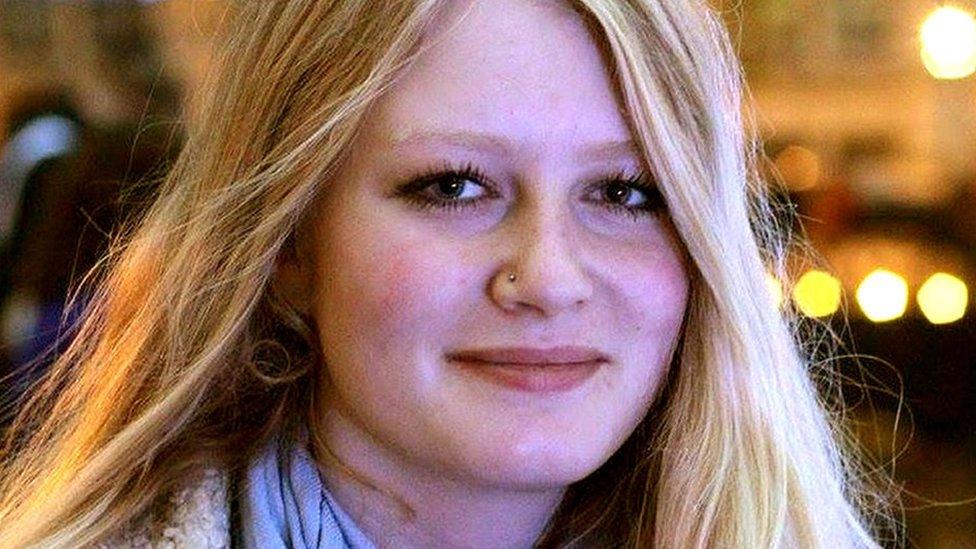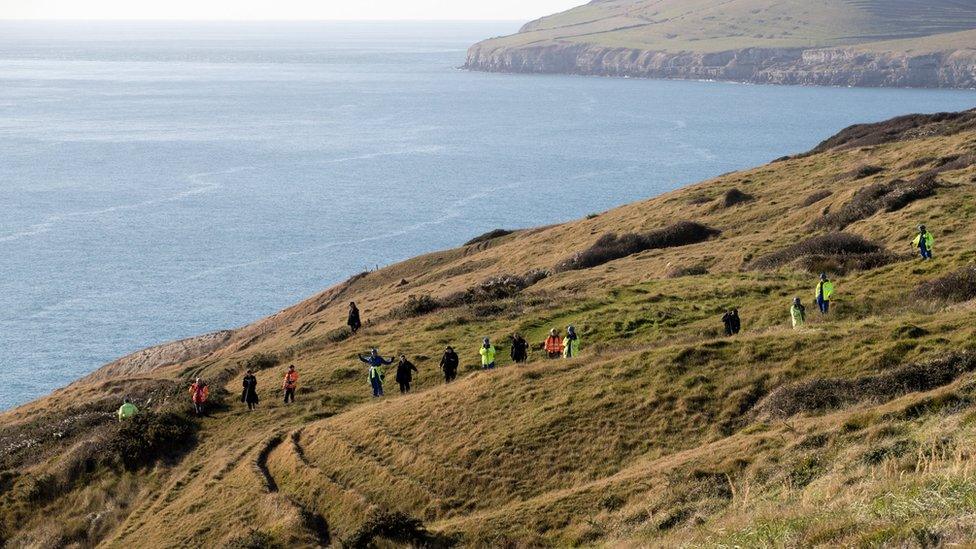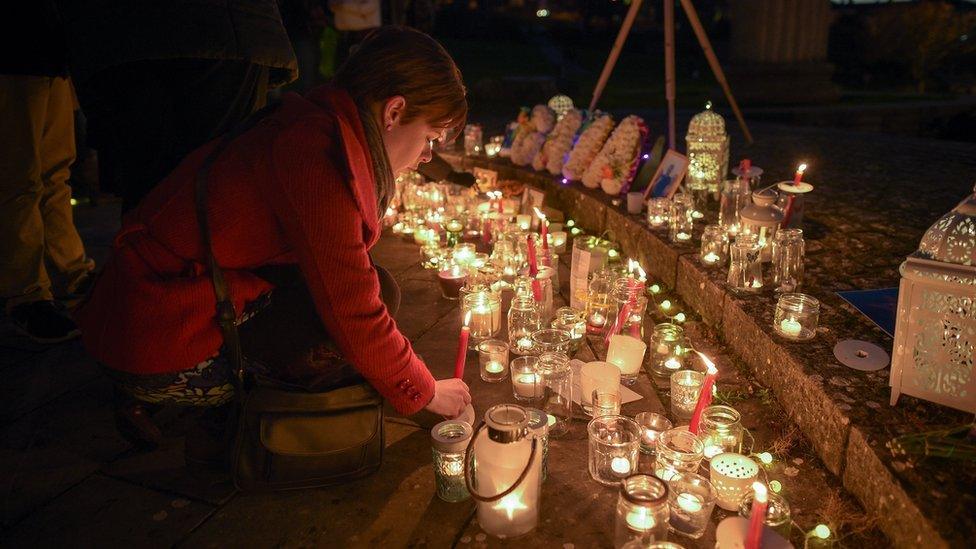Gaia Pope: Police probe into teen's rape claim investigated
- Published

Gaia Pope's body was found 11 days after she went missing from Swanage
Dorset Police is to be investigated over the way it handled an allegation of rape brought by teenager Gaia Pope two years before her death.
The 19-year-old's body was found near Swanage, Dorset on 18 November, 11 days after she was reported missing.
The police watchdog said the new probe comes after a complaint by Miss Pope's family about the force's handling of a rape allegation made in December 2015.
Her family has welcomed the announcement.
Catrin Evans of the Independent Office for Police Conduct (IOPC), said: "After an initial investigation, Dorset Police made the decision in June 2016 to take no further action in respect of a rape allegation made by Gaia.
"Following complaints made by her family, we will investigate whether the police response was in accordance with local and national policies and guidance in relation to the investigation of rape cases, including Crown Prosecution Service referral and charging criteria.
"My thoughts continue to be with Gaia's family and everyone affected by her death."
In a statement Supt Pete Windle, of Dorset Police, said: "Following receipt of this complaint we have referred ourselves to the IOPC as the mandatory referral criteria was met."
Dorset Police said it is cooperating fully with the police watchdog and HM Coroner and is supplying any information as requested by them.
An IOPC investigation into Dorset Police's response and subsequent searches for Gaia when she went missing is ongoing.

Scores of people brought flowers and candles to a vigil at Swanage amphitheatre after Gaia's body was found near a coastal path
Miss Pope's family say the rape and alleged failed investigation "severely affected Gaia's mental and physical state".
They said "she lived in fear every day" in the months before her death when she learnt the man who she reported for rape was eligible for early release from prison, where he was serving a sentence for a separate conviction.

Mass searches for the teenager were carried out on land surrounding the coast path on the Purbeck coast
Richard Sutherland, Gaia's father, said: "We need to know if more could have been done to make Gaia feel safe.
"Nothing can bring her back to us but a thorough, transparent and unbiased investigation will help us move forwards. We need to know the truth."
Maya Pope-Sutherland, Gaia's twin sister, said: "It feels like we've been screaming in a vacuum for a long time but now we will break the silence.
"I hope our search for answers can open the door to positive change and help other survivors be heard and get justice. It's what Gaia would have wanted."
In a statement, Inquest - the lawyers group representing the family - said: "In addition to concerns about the conduct of the police, the family have questions about whether a lack of support from underfunded mental health and social services contributed to Gaia's death."
Following her disappearance on 7 November 2017 searches by police, the coastguard and police helicopter - along with hundreds of volunteers - were carried out in the Swanage area.
Her body was found by police on 18 November near a coastal path and field between Dancing Ledge and Anvil Point, close to where items of her clothing had been found two days earlier.
Tests showed Gaia, who had severe epilepsy and mental health issues, died from hypothermia.
- Published6 April 2018

- Published13 February 2018

- Published8 December 2017

- Published25 November 2017
